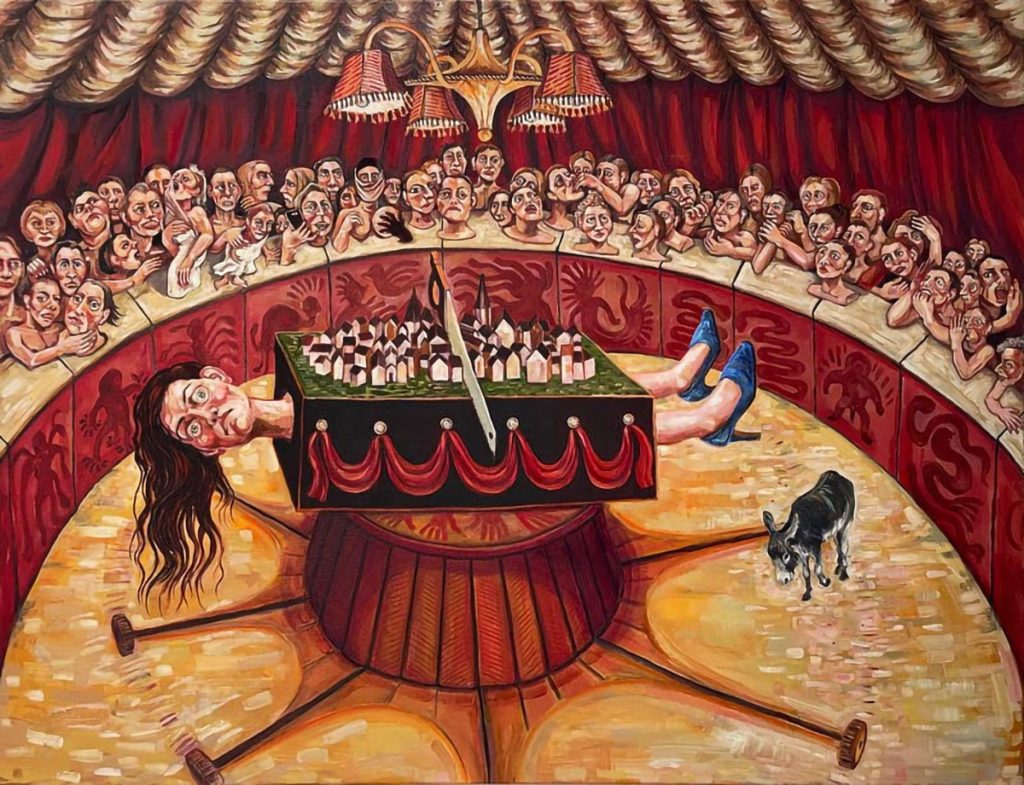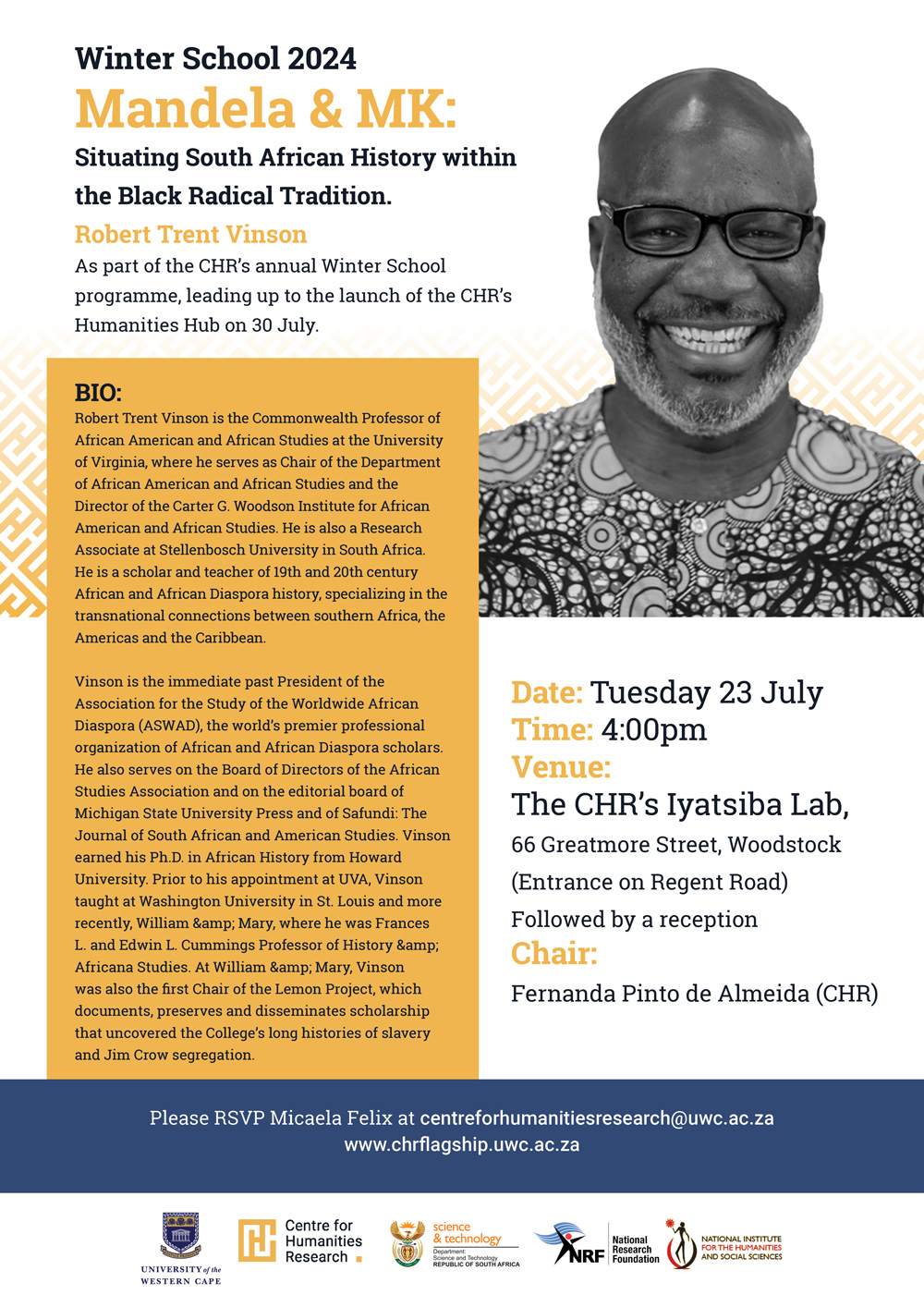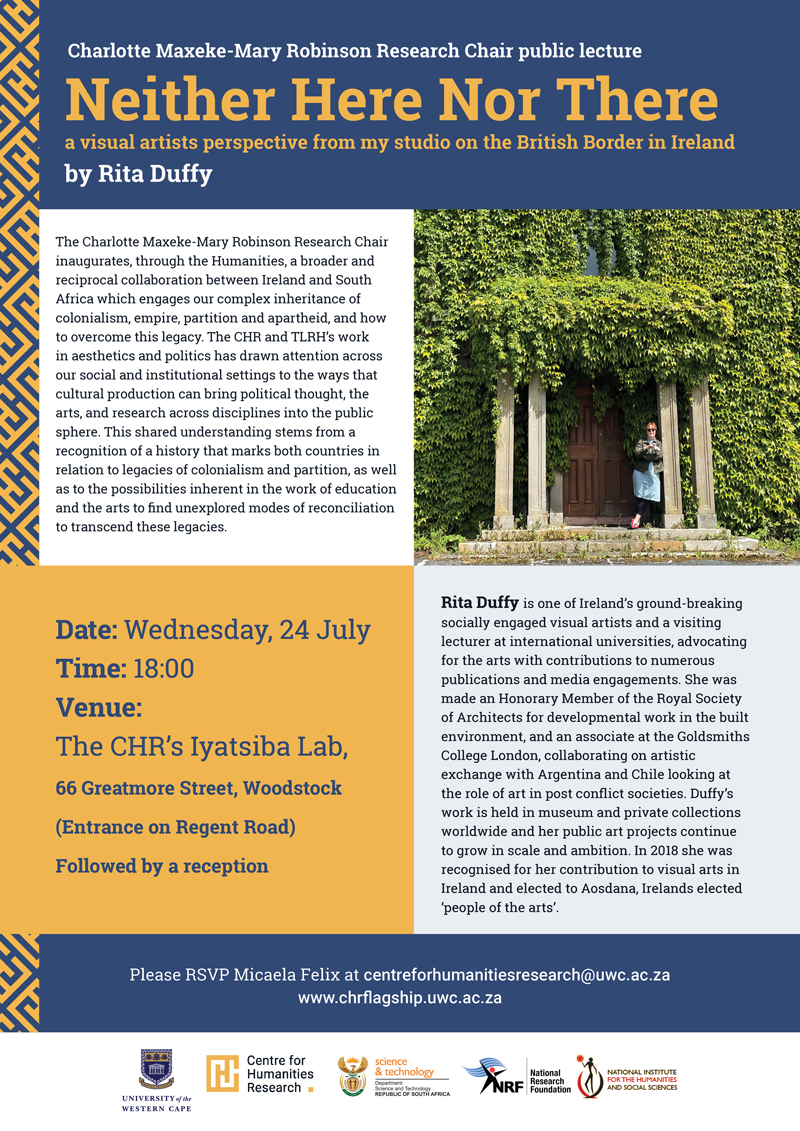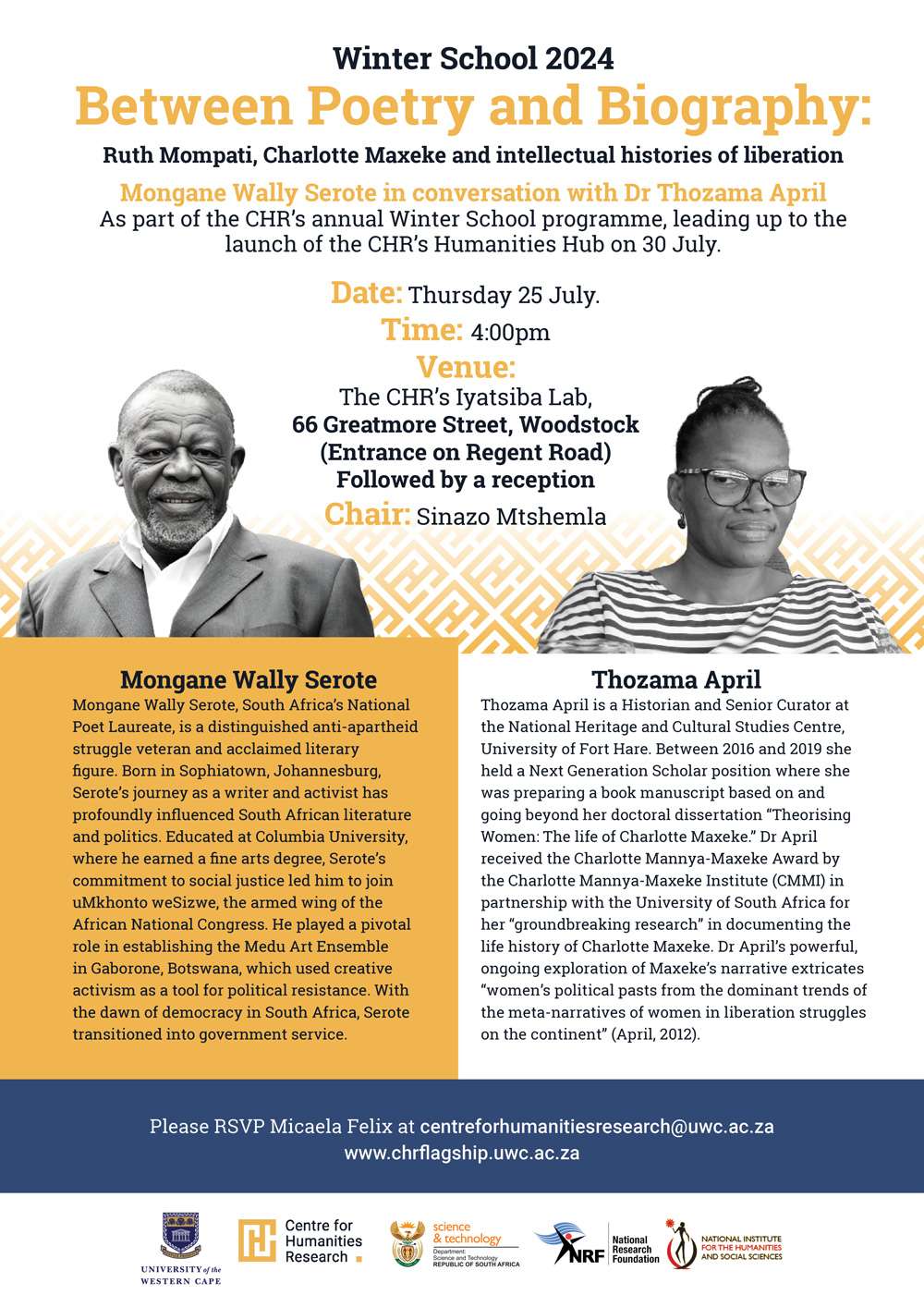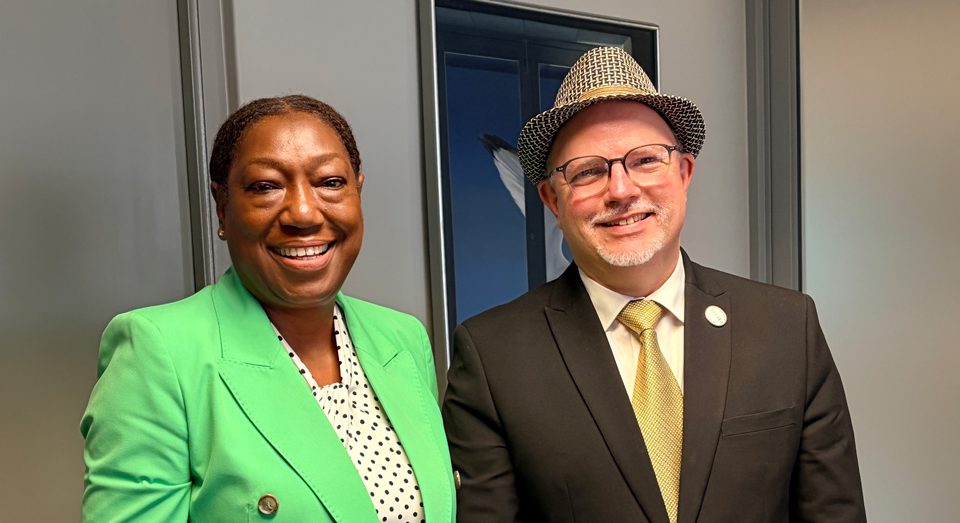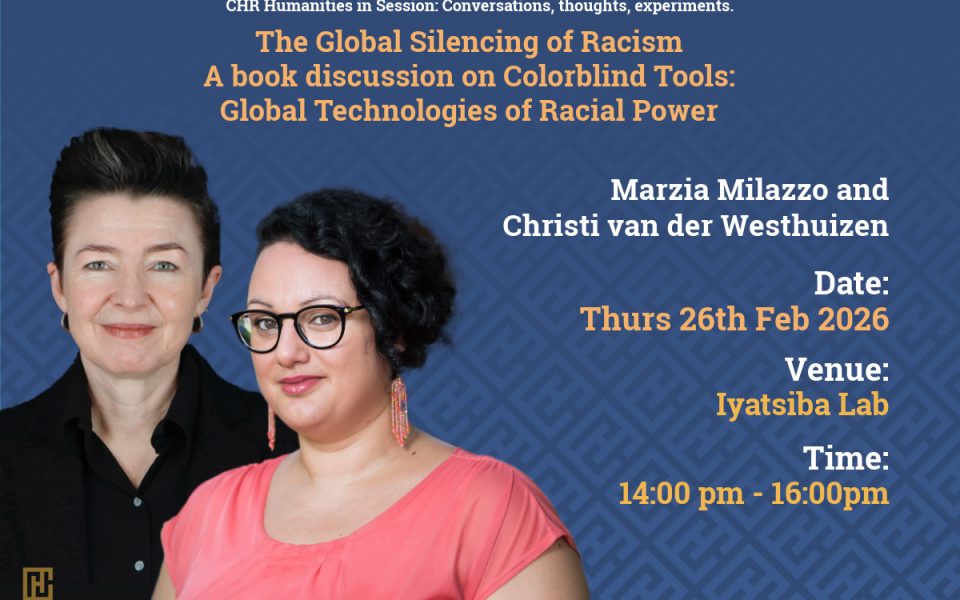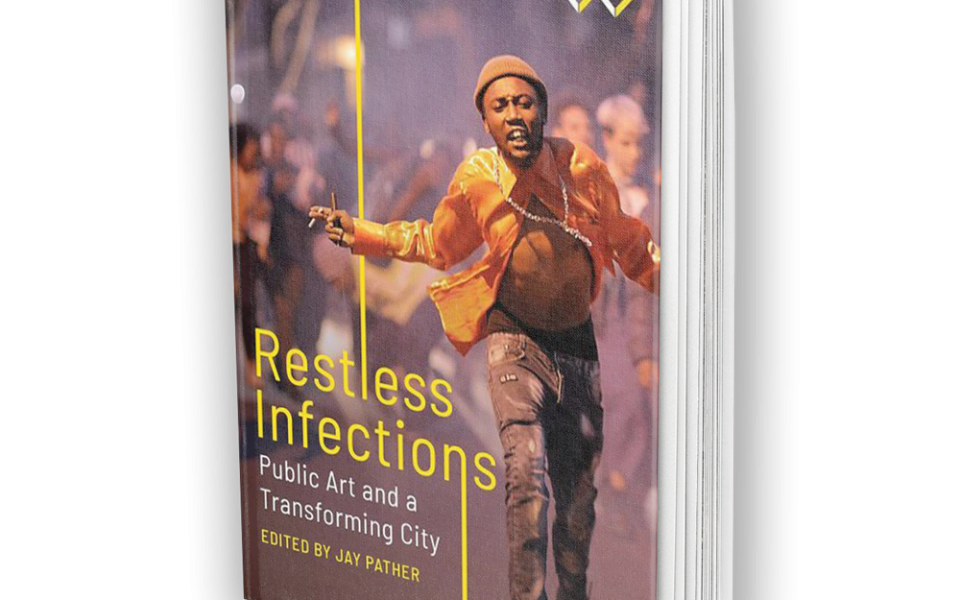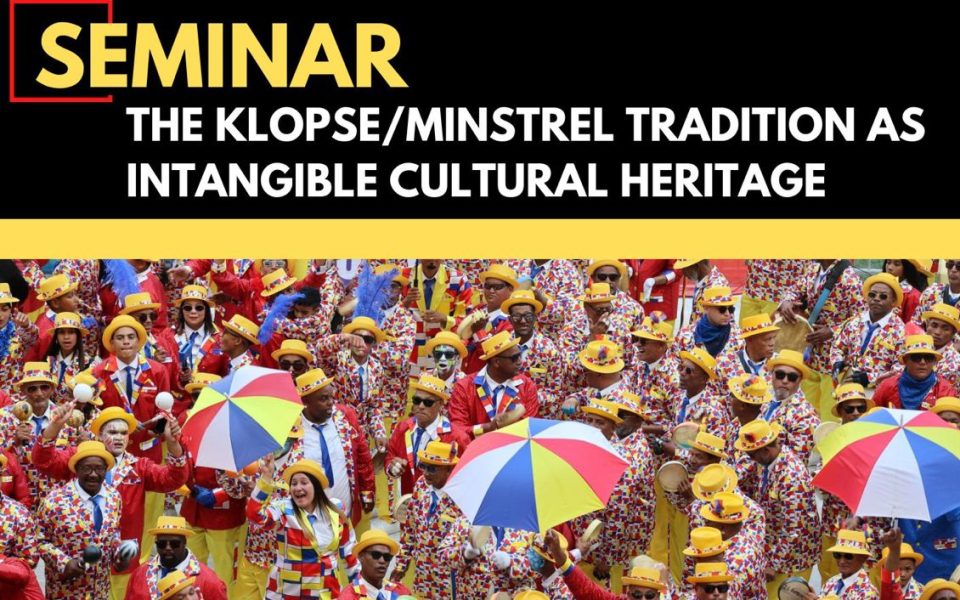Winter School 2024: Partition / non-Partition
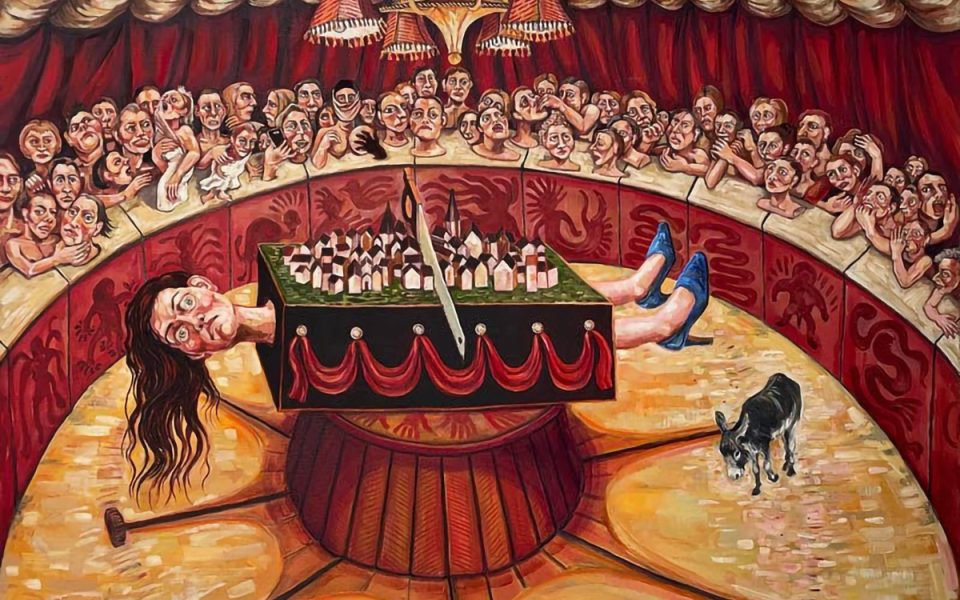
Rita Duffy: Persistant Illusion
The CHR’s annual Winter School will be held at the CHR’s Iyatsiba Lab between 22 and 26 July 2024 at the Iyatsiba Lab in Cape Town (66 Greatmore St, Woodstock).
Convened in collaboration with the SARChI Chair in Social Change, University of Fort Hare (UFH), the Interdisciplinary Centre for the Study of Global Change (ICGC), University of Minnesota (UM), and the and the Institute of the Humanities and Global Cultures (University of Virginia), this year’s theme coalesces around the question of Partition / non-Partition, and will include three public lectures by Robert Trent Vinson, Rita Duffy and Mongane Serote.
The Winter School concept note and programme can both be viewed below.
Mandela & MK: Situating South African History within the Black Radical Tradition.
The CHR welcomes Robert Trent Vinson who will be giving a public lecture as part of the CHR’s Winter School programme on Tuesday 23 July and the launch of the CHR’s Humanities hub on 30 July.
Date: Tuesday 23 July.
Time: 4:00pm
Venue: The CHR’s Iyatsiba Lab, 66 Greatmore Street, Woodstock, (Entrance on Regent Road).
Chair: Fernanda Pinto de Almeida (CHR)
Charlotte Maxeke-Mary Robinson Research Chair public lecture: Neither Here Nor There, by Rita Duffy.
The CHR welcomes the Maxeke–Robinson Research Chair, Rita Duffy, will be giving a public lecture as part of the CHR’s Winter School programme on Wednesday 24 July and the launch of the CHR’s Humanities hub on 30 July.
Date: Wednesday, 24 July
Venue: The CHR’s Iyatsiba Lab,
66 Greatmore Street, Woodstock
(enter via Regents Road)
Time: 18:00
Between Poetry and Biography: Ruth Mompati, Charlotte Maxeke and intellectual histories of liberation
The CHR welcomes Mongane Wally Serote, South Africa’s National Poet Laureate, and Thozama April, who will be giving a public lecture as part of the CHR’s Winter School programme on Thursday 25 July and the launch of the CHR’s Humanities hub on 30 July.
Date: Thursday 25 July.
Time: 4:00pm
Venue: The CHR’s Iyatsiba Lab, 66 Greatmore Street, Woodstock, (Entrance on Regent Road).
“An intellectual must try to restore memory, restore some sense of the landscapes of destruction”
– Edward Said
The Winter School will aesthetically resemble a temporal “apartionality”, by the way in which we define beginning, middle and end – at the end we have Derrida’s last word, in the middle Hoerl’s sense of mediality, and we finish with the (new) beginning as utopia in the sense of the Palestinian state as future becoming.
How do we address what is timely about partition from the vantage of a concept’s last word? Derrida gives us the notion of "apartitionality” – not the first time that a political regime based on race was “naturalised” or “ontologised” but the one that becomes reference for past and future projects of that kind. Apartheid is a “memory in advance” because it marks a point by which all things become knowable in hindsight, even if apartheid as “racism’s last word” itself famously could not find the language to define race.
If one of partition’s key exemplars goes under the proper name, APARTHEID, in which, as Jacques Derrida argues, we are confronted with a method of designating, instituting and administering the idea of difference, inaugurates a naming through which partition comes to be located within a language, in this name it also gives us the possibility of holding on to the memory of resisting the formations of ontologies, discipline, politics and the senses entrenched through that name.
Apartheid, then, can perhaps be thought of as the naming of a method through which difference comes to be entrenched for the subject as ontological. In other words, it calls attention to its fabrication as a point-of-view. Critical here would be the historical detail that the apartheid regime largely stopped using the term “apartheid” in the mid 1950s, as it became a diagnostic weapon in the conceptual apparatus of the anti-apartheid movement. Perhaps to mark the impossibility of Partition, in its initial coinage, the term sutures the English “part” with the Dutch suffix “-heid” to indicate an abstract noun, “apartheid”. In other words, more than an untranslatable idiom, apartheid, as an intermingled term to prohibit intermingling, embodies the moment of its ideological deconstruction–it is a naming that orders the terrain for a re-working, a new thinking, of difference, as such.
By contrast, non-partition does not designate a unity of otherwise whole parts which partition is said to divide, an attitude that Sylvia Wynter calls “the pernicious evil of multiculturalism.” Rather, non-partition asks us to think, precisely, about parts and their relation. In our 2024 Winter School, we will take the line, the dash, the slash that divide and join partition’s parts as a provocation through which to think about this conceptuality. Zarina Hashmi’s prints, for example, inscribe partition’s line as a mark that sears the skin and body as much as surface, territory and time.

